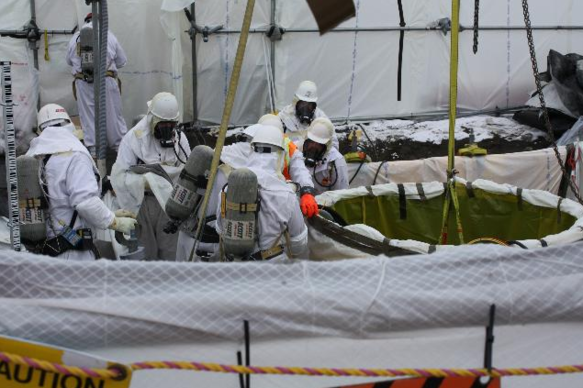AG Urges Senate to Pass Hanford Site Presumption
Thursday, March 23, 2017 | 0
Washington State Attorney General Bob Ferguson has encouraged the state Senate to pass a bill that would help workers at a nuclear site get their workers' compensation claims accepted, Seattle's NBC affiliate reported.
 House Bill 1723 was scheduled to be heard Wednesday afternoon in the Senate's Labor, Commerce and Sports Committee. The bill passed in the House by a vote of 69-29 earlier this month.
House Bill 1723 was scheduled to be heard Wednesday afternoon in the Senate's Labor, Commerce and Sports Committee. The bill passed in the House by a vote of 69-29 earlier this month.
The measure would create a presumption that certain diseases contracted by workers at the Hanford Nuclear Reservation were job-related. The diseases include thyroid cancer, chronic beryllium disease, lung cancer, leukemia and respiratory disease.
KING-TV 5 has run a series of reports on ailing workers from the Hanford Site whose workers' compensation claims were denied. One of the bill's co-sponsors, State Rep. Gerry Pollet, D-Seattle, credited the KING-TV reports for bringing attention to the issue.
The reports spotlighted workers such as Dave Klug, a Hanford Site employee for more than 24 years who has had thyroid cancer and occupational asthma. Exposure to chemical vapors in 2010 left him with a rash on his neck that has lasted seven years, he said.
Unable to work for a year because of medical problems, he had to take a 401(k) loan and cash vacation time to make ends meet after his workers' compensation claim was denied.
State Attorney General Bob Ferguson told KING-TV he believes it is the Legislature's "obligation" to stand up for these workers.
"What's happening is not right, and it seems like for the state Legislature it's the least they could do to pass a bill like this," Ferguson said.
Hanford Site claims are paid by the federal government, but the state Department of Labor and Industries has final say over whether a claim is accepted or rejected, KING-TV reports.
The Hanford Site contains 56 million gallons of toxic waste left over from when it housed the federal government's nuclear weapons testing program, according to Scientific American. Workers are tasked with disposing of the waste.



Comments